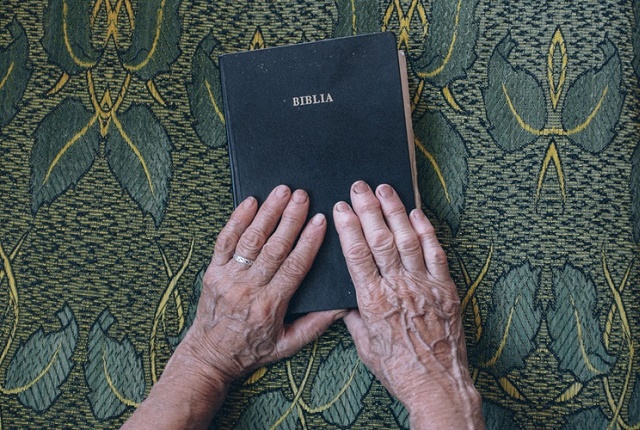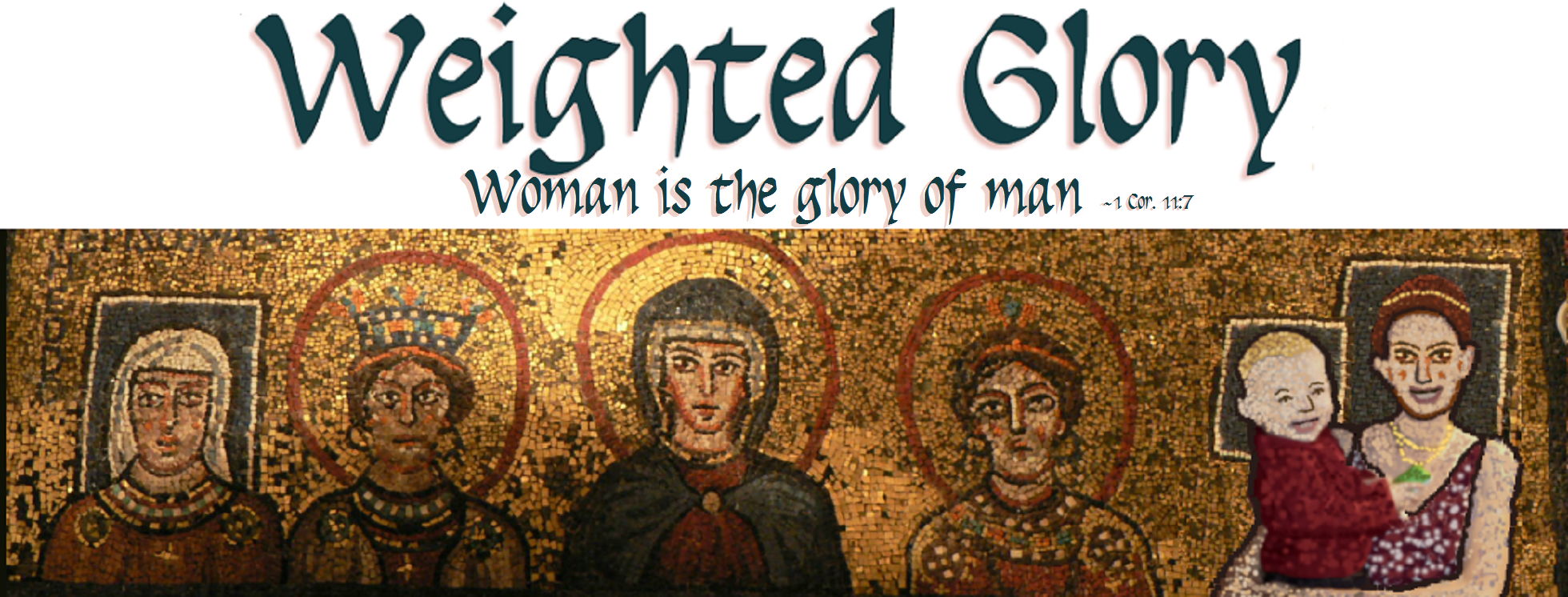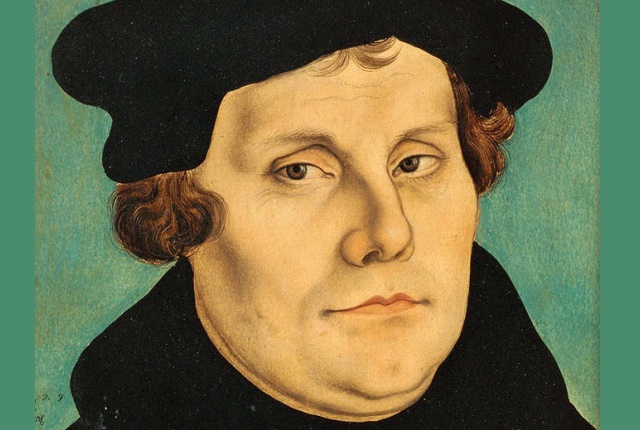 A short but significant account of a female prophet occurs in 2 Chronicles 34. In this chapter, King Josiah of Judah makes the decision to restore the temple of the LORD. In making repairs to the temple, the high priest Hilkiah comes across “the Book of the Law of the LORD”—probably all or at least part of the book of Deuteronomy. When the book was read to King Josiah, he “tore his robes.” Apparently the people of Judah were unaware of the Law and had not been following the commands contained therein. King Josiah then orders Hilkiah and four other top-ranking Judean officials to “Go and inquire of the Lord” on behalf of himself and all of Israel and Judah concerning the teachings found in the Law of the Lord.
A short but significant account of a female prophet occurs in 2 Chronicles 34. In this chapter, King Josiah of Judah makes the decision to restore the temple of the LORD. In making repairs to the temple, the high priest Hilkiah comes across “the Book of the Law of the LORD”—probably all or at least part of the book of Deuteronomy. When the book was read to King Josiah, he “tore his robes.” Apparently the people of Judah were unaware of the Law and had not been following the commands contained therein. King Josiah then orders Hilkiah and four other top-ranking Judean officials to “Go and inquire of the Lord” on behalf of himself and all of Israel and Judah concerning the teachings found in the Law of the Lord.
Hilkiah and the other officials seek out the prophet Huldah, who tells them, “This is what the LORD says: ‘I am going to bring disaster on this place and its people—all the curses written in the book that has been read in the presence of the king of Judah. Because they have forsaken me and burned incense to other gods and aroused my anger by all that their hands have made, my anger will be poured out on this place and will not be quenched.’” (NIV) She then adds as a message to King Josiah, “Because your heart was responsive and you humbled yourself before God when you heard what he spoke against this place and its people, and because you humbled yourself before me and tore your robes and wept in my presence, I have heard you, declares the LORD. Now I will gather you to your ancestors, and you will be buried in peace. Your eyes will not see all the disaster I am going to bring on this place and on those who live here.” (v. 24-25, 27-28)
King Josiah then calls an assembly of the people, reads to them from the Book of the Law of the Lord, and renews Judah’s covenant with God (v. 29-33). It would seem that Huldah’s prophecy concerning Josiah was a conditional one, since Josiah eventually died on the field of battle disobeying God (2 Chronicles 35:20-24).
There are a number of significant points to glean from the account of Huldah:
It contradicts the hierarchist interpretation of 1 Timothy 2:12
Huldah was a woman who exercised significant authority over men, and not just any men, but the high priest, four other top-ranking Judean officials, and (by proxy) the king. Her words had a lasting effect on the whole of the people of Judah. Additionally, she exercises this authority boldly and confidently, and the text takes this as normative for prophetic happenings in Israel. The event is not treated as abnormal because she was a woman.
It shows that female prophets served in the same capacity as their male counterparts
Huldah speaks with a “thus saith the LORD” formula, the same as any number of male prophets in the Bible do, demonstrating that she is a mouthpiece for God. What could hold more authority than speaking for God? It is little wonder that the New Testament calls the office of prophet the second-most authoritative after apostle (1 Cor. 12:28). Additionally, in the brief space of her story, Huldah makes a prophetic prediction, albeit a conditional one, just as many male prophets in the Bible do.
It shows that women are worthy to teach the Bible to adult men, to correct them, and to rebuke them
Numerous hierarchists interpret 1 Timothy 2:12 to mean that a woman can’t correct and rebuke a man on what the Bible means, ever. (For a recent example of this, see Tim Fall’s excellent take-down of Tim Bayly here.) The account of Huldah is sufficient to refute these false teachings on God’s Word to women. If Huldah was worthy to rebuke and correct the high priest and the King of Judah, surely female professors and bloggers can rebuke and correct much lesser men like John Piper and Doug Wilson.
Hierarchists like Wayne Grudem and Paige Patterson also teach that women may not teach the Bible to adult men. Patterson went so far as to fire a female Bible professor from Southwestern Baptist Theological Seminary because of his interpretation of 1 Tim. 2:12. Yet in this passage, Huldah parses the meaning of Deuteronomy for the highest-ranking men in Israel. Her teaching is one of life application rather than of exegesis, but it is a teaching, sure enough.
To apply a saying of Jesus to the account of Huldah: Piper, Wilson, Grudem and Patterson are in error because they know neither the Scriptures nor the power of God.
It puts to rest the notion that God only calls women to authoritative leadership positions when worthy men cannot be found
A common hierarchist response to scriptural examples of women in authority (like Deborah in Judges 4) is to insist that God must have called a woman because no worthy men were willing. While this is a terrible argument in general (since when is God’s arm too short to maneuver unwilling men into leadership positions? Moses, Peter, etc.), in the case of Huldah, we know that male prophets like Jeremiah and Zephaniah were active in Judah along with Huldah. There is no reason to believe that worthy men were in short supply.
Conclusion
The story of Huldah may be short, but it functions as a significant Scriptural reality check against hierarchist applications of 1 Tim. 2:12.




This is great Bridget! I’ve been enjoying your writing!
Just had a closer look at your mosaic header. Love it!!!
Thanks, Marg! I’m glad you like it. 🙂
Hey Bridget,
Great article here on Huldah. She was clearly a leader in prophecy, no apologies from the Bible to excuse her. Thanks for this.
Thanks, Bev!
So, Bridget, what’s the point here? Is there some reason we should embrace 2 Chronicles 34 and throw out 1 Timothy 2? What exactly is the right conclusion to draw when one passage of scripture contradicts another? Or do we just throw out the whole Bible because parts of it contradict?
Kevin ~ Hi! I’m glad you’re still reading. That’s a great question!
I intend on doing blog posts on passages like 1 Timothy 2:11-15, 1 Corinthians 14:34, 1 Corinthians 11:2-12, and Ephesians 5:22. But, broadly, there are two schools of thought among those of us who don’t believe the Bible is contradicting itself on this matter. Egalitarians think that God does call women to leadership and authority and the passages that appear to restrict women are either mistranslated, misunderstood, and/or temporary restrictions specific to the situations that were facing those particular congregations. Complementarians/patriarchy advocates/hierarchists think the passages that restrict women are God’s order for Creation and the Church and the passages where women are seen leading were special exceptions.
I fall in the first camp for a lot of reasons, not the least being that most of the “restriction” passages come in pastoral letters that were personal and addressing problems particular to those congregations. Also of note is that every single “restriction” passage contains components that hierarchists themselves reject. 1 Cor. 11 says for women to wear head coverings, 1 Cor. 14 says for women to remain silent in the church (which, taken at face value, would exclude worship, prophesy, prayer, giving talks in Sacrament meeting, and other forms of speech in church), 1 Tim. 2:15 says women are saved through childbirth, and Eph. 5-6 says we can own slaves. Egalitarians are at least being consistent in thinking these entire passages are cultural and limited. Hierarchists pick and choose very selectively within the passages themselves.
I know that you’re LDS which means you bring other sources of authority to the table that Protestants reject (namely, modern-day revelation). Even when I was a teenager studying Mormonism though, it didn’t make any sense to me that women couldn’t be prophets. I even went so far as to write to Sheri Dew about it when I was 17. She was very nice in her response and genuinely seemed to care about my turmoil, but she pretty much avoided what I had pointed out in the Bible and just bore her testimony.
If I were Mormon, I would probably see women’s priesthood as something that existed in biblical times that God has yet to restore, perhaps because the people’s hearts are too hard for it. After all, the 9th AoF says, “He will yet reveal many great and important things pertaining to the Kingdom of God.”
“Her words had a lasting effect on the whole of the people of Judah.”
The words she spoke were not hers but God’s. Isn’t that the reason those words had a lasting effect? And it wasn’t the words themselves that held the power. It was that God had made the decision and had used Hildah as a messenger.
Bruce, would you go out of your way to strain out gnats if this article was referring to a guy who ‘spoke God’s words and not his’? We all understand that God was using Huldah, which is the whole point of the article… that God had no problem speaking through a woman or a man.